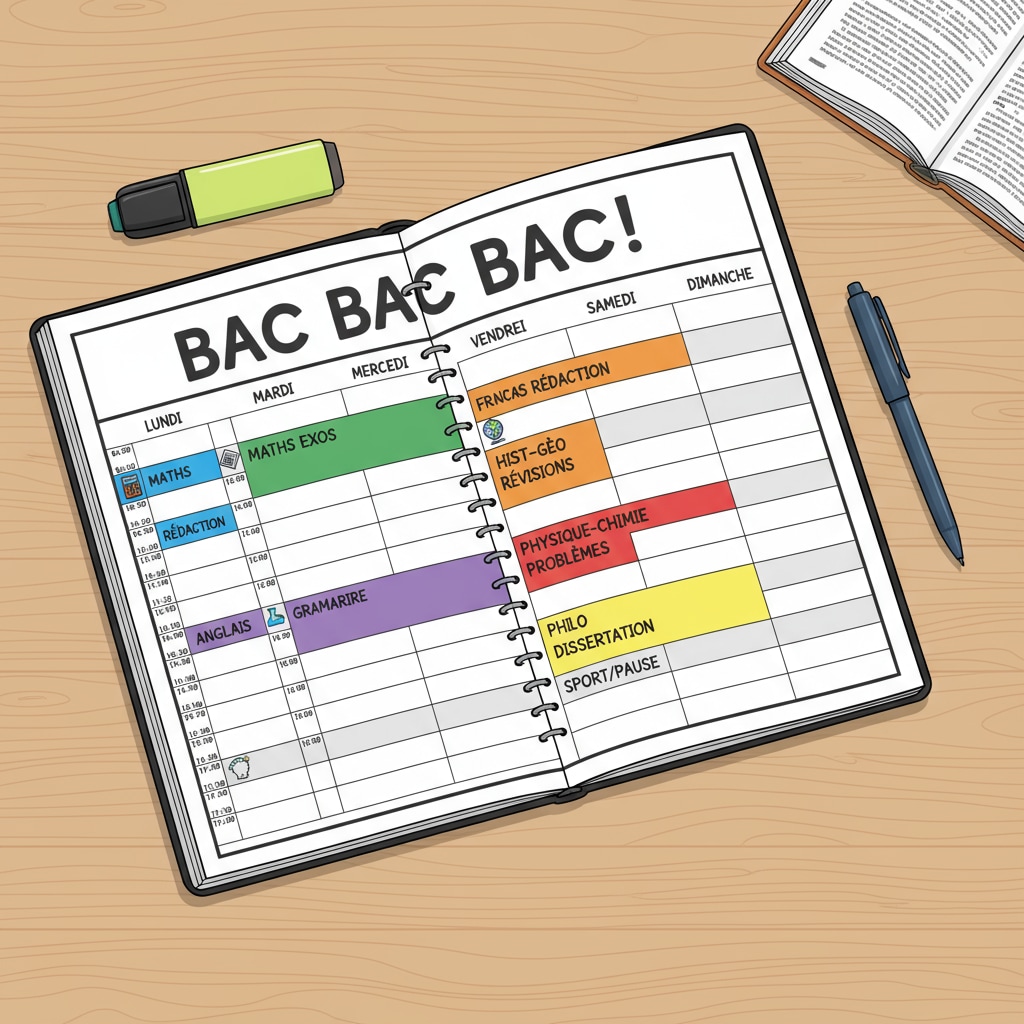Preparing for the baccalauréat, the French high school diploma exam, requires effective time management and early planning. This is especially crucial when students are already dealing with a heavy academic load. With the right strategies, students can build a solid knowledge base without sacrificing their current studies or well-being.

Understanding the Baccalauréat Landscape
The baccalauréat is a comprehensive exam that assesses students’ knowledge across various subjects. It has different streams such as the general, technological, and vocational tracks. Before starting the preparation, it’s essential to understand which track you are on and what the specific requirements are. For example, the general track might focus more on academic subjects like literature, history, and science. According to Wikipedia’s entry on Baccalauréat, each track has its own set of compulsory and optional subjects. This understanding will help you plan your study time more effectively.
Effective Time Management Strategies
One of the keys to successful baccalauréat preparation is managing your time well. First, create a detailed study schedule. Allocate specific time slots for each subject, making sure to include breaks. For instance, you could study for two hours and then take a 15 – minute break. This helps maintain focus. In addition, prioritize your tasks. Identify the subjects that need more attention based on your strengths and weaknesses. You can also use tools like a planner or a study app to keep track of your schedule.

Another important aspect is to make use of your free time. Instead of wasting those short breaks between classes, use them to review a few key points or solve a couple of practice problems. This way, you can gradually build up your knowledge over time. For example, during a 10 – minute break, you could quickly go through a set of vocabulary words for the French language section of the baccalauréat.
Building a Solid Knowledge Base
Start building your knowledge base early. For each subject, gather the necessary study materials such as textbooks, lecture notes, and past exam papers. Review the basic concepts regularly and gradually move on to more complex topics. Make summaries and flashcards to aid your memory. As you progress, practice solving sample questions and past exam papers. This will not only help you understand the exam pattern but also improve your problem – solving skills. According to Britannica’s information on the French education system, a strong foundation in the curriculum is vital for baccalauréat success.
It’s also beneficial to join study groups. Discussing difficult topics with your peers can give you new perspectives and help you clarify any doubts. You can quiz each other and share useful study resources.
Readability guidance: In this article, we’ve used short paragraphs and lists to summarize key points. For example, in the time management section, we listed different ways to manage time. Each H2 section has provided practical tips. We’ve also controlled the use of passive语态 and long sentences. Transition words like ‘for example’, ‘in addition’ have been used to make the flow of the article smooth.


